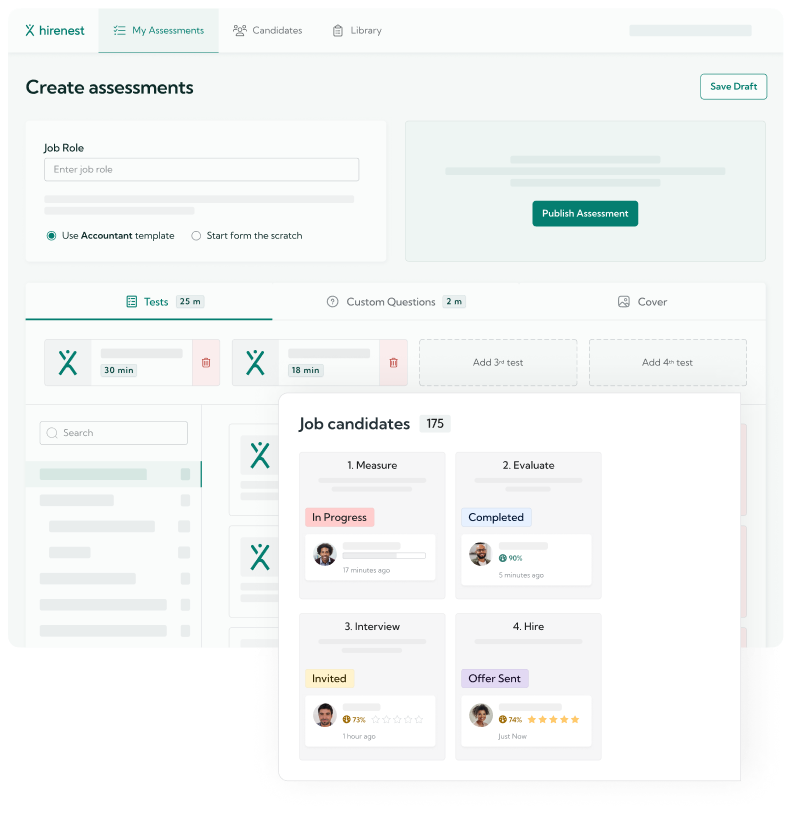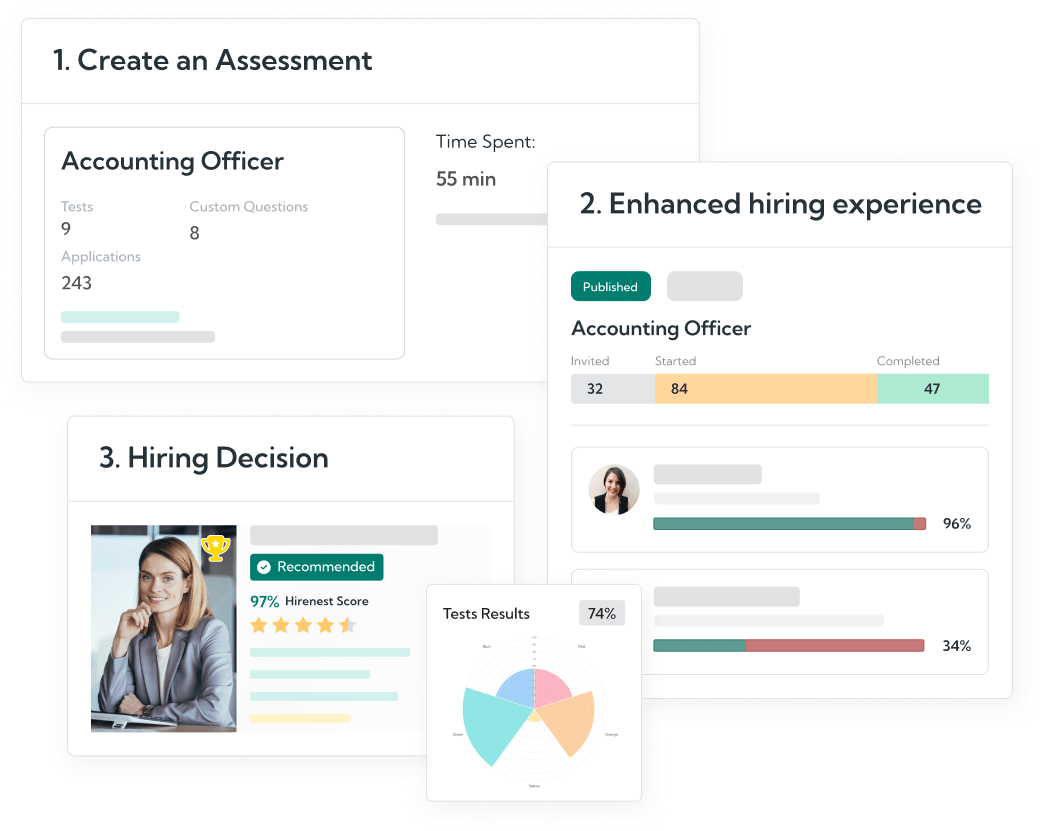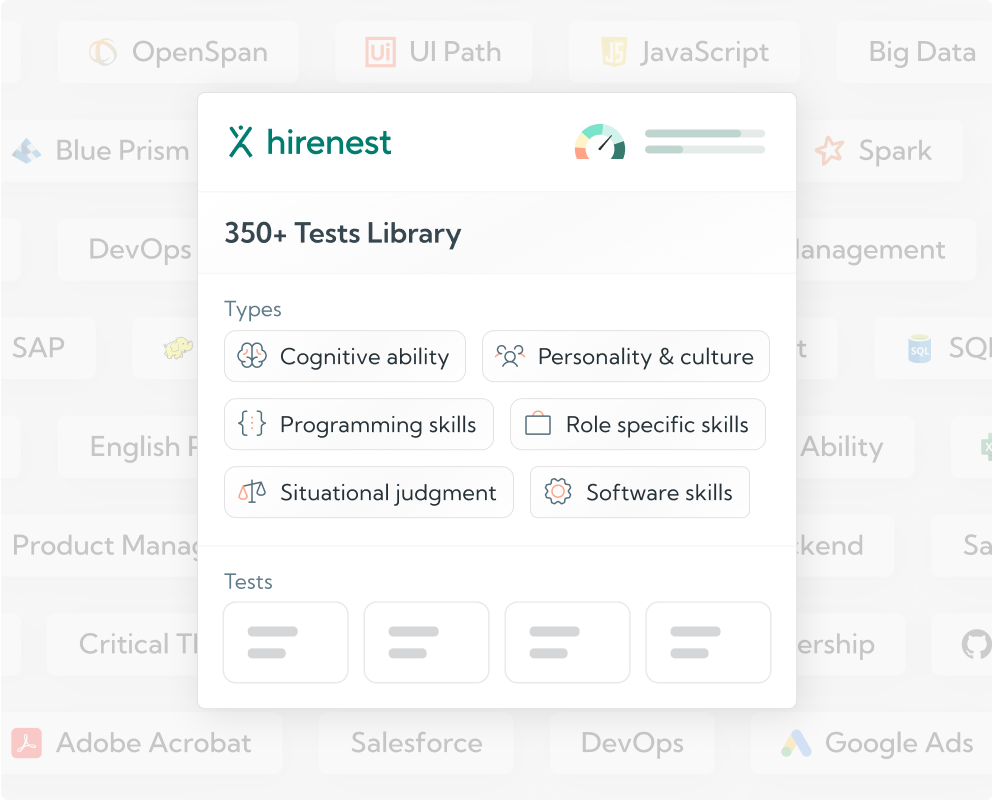Critical Thinking Test
Critical thinking is about people's ability to think rationally about a topic. It is specifically about their ability to analyze information, whether in textual, numerical, or graphical form, and make logical connections between ideas, drawing reliable and confident conclusions.
The current test assesses a candidate's critical thinking skills across three general parts and five measurement areas. These were adapted based on a well-researched model as a common standard framework for measuring critical thinking: the Watson-Glaser Critical Thinking Appraisal (WGCTA) measure.
Recognizing Assumptions
This part includes questions designed to assess a candidate's ability to analyze statements, understand what is being said, evaluate whether or not the information offered is valid, and whether or not evidence has been provided to back it up.
Evaluating Arguments
This part includes questions designed to assess a candidate's ability to analyze arguments and decide on their weakness or strength. It involves thoroughly examining all relevant facts rather than seeking information confirming a preferred point of view.
Drawing Conclusions
This part includes questions designed to assess a candidate's ability to analyze information, reach a logical, reliable, or sound conclusion (or inference), and determine whether or not the conclusions (or inferences) may be confidently drawn.
The test is timed and in a multiple-choice format.
Questions
30
Time
30 min
Level
intermediate
Used
6250

Boost Productivity: Join 2000+ Companies Using Hirenest vs. CV’s

Critical Thinking Tests: Unlocking Efficient Talent Evaluation

What does Hirenest's Critical Thinking test measure?

All-In-One Solution
Find top-notch talent in a flash!
Hirenest offers a wide range of features to simplify the recruitment process, from a rich library of tests and templates to Al scoring and detailed reports. Additionally, a robust ATS system facilitates actions to further streamline the recruitment process.
Learn more
350+ Tests Libary
Unlock the power of 350+ professionally designed tests!
Hirenest offers an extensive selection of tests to suit all assessment needs. Our tests provide invaluable insights into an individual's cognitive aptitude, role-specific competencies, situational judgment, skill proficiency, and personality.
Learn more
Why use Hirenest's Critical Thinking test?

Why Hirenest?
Because we use our own platform.
Yes, we use our own pre-employment assessment platform to build the best team possible. And our efforts have paid off: We've scaled our team to more than 50 fantastic members, testing more than 5,000 along the way. And that team has helped us become one of the premier pre-employment testing companies worldwide. (If only we could've tested our office dogs too; managing their behavior is a challenge!)
60,000 +
Assessments
completed
5,000 +
People hired
45,000 +
Saved hours
for our clients
Problems we solved
74%
of employers admitted to making the mistake of hiring someone unsuitable for a job.
27%
of businesses reported incurring losses of over $75,000 due to incorrect hiring decisions.
50%
chance of a hiring manager making an incorrect hiring choice.
23%
of businesses reported a decrease in output due to an unsuitable hire.
<10%
of unstructured job interviews are effective at predicting the best candidates.
Why does it happen?
hiring is difficult due to reliance on subjective, inconsistent opinions.

Which job roles require the Critical Thinking assessment?
Critical thinking assessments are crucial for job roles that require problem-solving and analytical skills. These tests are vital for pre-employment screening to ensure the hiring of competent candidates. Hirenest offers online critical thinking skill tests at an affordable price. Our aptitude tests include examples, questions, and answers, providing HR managers and hiring companies with valuable insights into a candidate's abilities during the interview process. Trust Hirenest for effective and cost-efficient assessments to make informed hiring decisions.